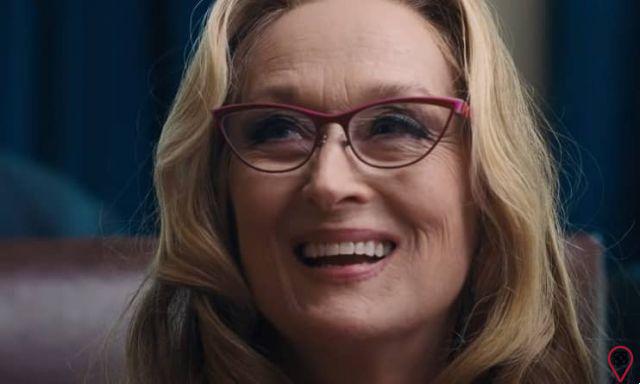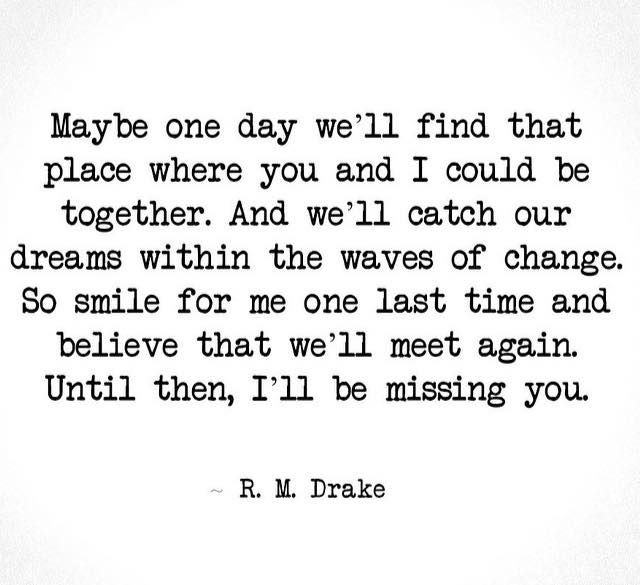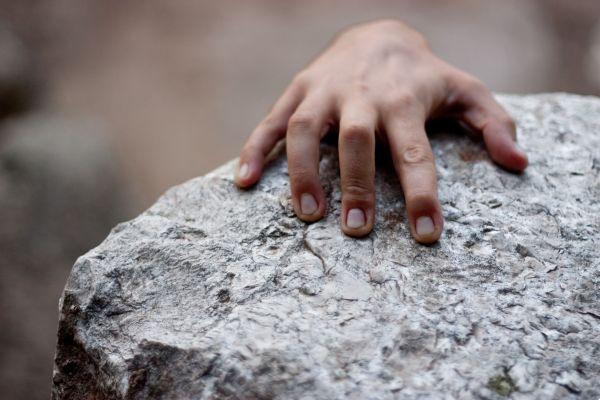Spoiler alert!
The film "Don't Look Up" is a satire that, in addition to making us laugh, makes us embarrassed. The exaggeration on screens may seem funny at first, but it scares when we realize the similarities between fiction and reality.
In the plot, astronomers Kate Dibiasky (Jennifer Lawrence) and Randall Mindy (Leonardo DiCaprio) discover the coming of a gigantic comet towards Earth, which has a 99,78% chance of destroying all humanity in just over six months. . The difficulty, however, is to convince the population and powerful politicians that the threat is real and is getting closer.
This is where issues such as denialism, alienation in favor of celebrities, political corruption, disinformation and manipulation of the interests of the great masses come in. Director Adam McKay made a statement claiming the comet is a metaphor for global warming. But for those watching these days, the story eerily resembles the world after the arrival of the Covid-19 pandemic.
With a strong cast consisting of Meryl Streep, Mark Rylance, Jonah Hill, Thimothée Chalamet, Cate Blanchett, Ariana Grande, Chris Evans and several other celebrities, today's problems face us face to face in a humorous and extremely acid. See below the reflections we can take from the film (but be careful as it contains spoilers):
The inversion of values: famous X scientists
One of the main plot points is about how passive we are to the world's problems. How many times do we prefer to pay more attention to the gossip of a famous than to the directions our planet is taking?
As the comet approaches Earth, the media channels even try to give a voice to scientists, but the public clamors for the live broadcast of the reconciliation of singer Riley Bina (Ariana Grande) with her ex-boyfriend, a very popular DJ. Looks familiar, doesn't it?

Astronomer Randall Mindy himself finds himself lost in this universe of fame, getting involved with presenter Brie Evantee (Cate Blanchett) and becoming another media influencer. Subsequently, he wins a position in the White House, but realizes that it is merely illustrative, with his popularity used only to give credibility to the new government decisions.
In Spain, the pandemic opened up this problem. Many scientists, including those with vast CVs, have forced themselves to appear more in the media simply to be heard during the Covid-19 pandemic. Considering “only” their experience in the area, they knew they would be neglected. Because? That is the subject of the next topic.
Alienation from above
As the comet approaches and humanity's time runs out, scientists organize demonstrations in the streets and on social media asking people to look at the sky and see with their own eyes. On the other hand, the government led by President Orlean (Meryl Streep) and the multi-million company BASH are going against the grain: they create the “Don't Look Up” campaign.
Such a movement, however, is not based on a lack of scientific knowledge, but on the overlap of political and economic interests - since, during the film, they discover that the comet has large reserves of valuable metals.
Using the media, disinformation and hysteria, the White House is able to influence thousands of people to disbelieve the imminent danger. Any resemblance to certain denialist presidents who use fake news to minimize the pandemic is not mere coincidence!

Entrepreneur Peter Isherwell (Mark Rylance) is another important figure in this context. Like the great businessmen of our generation, such as Jeff Bezos and Elon Musk, he tries to be the salvation from the obstacles created by the multimillionaires themselves.
It is despairing to watch the masses discredit science until the last minute only to change their minds when there is nothing else to do. The only one who seems to keep her sanity throughout the film is astronomer Kate Dibiasky, a character who also brings several reflections, as we will see below.
beauty above science
Dibiasky is a doctoral student in astronomy and was the first person to discover the comet's approach. But what catches the public's attention is her appearance: her colored hair, her piercings, her tattoos. As a young woman, her doubts about her credibility don't even compare to those of her colleague Randall Mindy, a middle-aged white man - who, at one point, is dazzled by the world of celebrities.
At times, Dibiasky appears to be concerned with the aesthetic issue, despite showing himself to be a character very detached from society's standards. It's as if, for women, there was always this concern in the background.
Some comments regarding the scientist's appearance are made by another woman, the US president. Played by Meryl Streep, she is one of the main pivots of denialism in the film. Understand:
Denialism: from reality to fiction
From the “Don't Look Up” campaign, the White House and the top business leaders manage to convince a vast portion of the population that the comet is pure invention. By the time it reaches Earth, many people prefer to deny the scientific evidence or, worse, go against attempts to stop it.
You don't have to look far to see the resemblance to our reality. "Covid-19 is just a little flu", "vaccines don't work", "vaccines cause AIDS" and "chloroquine cures Covid-19" are some of the absurdities that spread during the pandemic and convinced many people that it is not necessary to protect from virus.
You may also like
- See what we can learn from Leonardo DiCaprio's documentary
- Learn how reading is important for self-knowledge
- Understand how knowledge is true salvation
In this scenario, those who defend science seem even intemperate. The scene in which Dibiasky freaks out in a live interview for not being taken seriously was compared, for example, with an episode in which biologist Natalia Pasternak revolts with TV Cultura journalists treating Covid-19 in a light way.
In the highest positions of the committees to fight the pandemic, whether in the movie or in real life, are unprepared professionals who prefer to spread disinformation to follow what the experts say. And in this vicious cycle we live until the comet collides with the Earth...
In the end, only the richest manage to save themselves and escape before the explosion. The main characters, who have tried throughout the film to warn of the comet's dangers, gather for dinner and await the inevitable. The question that remains, then, is: in a capitalist world, which is more important: principles or money? Human life or profit? Watch and reflect.

























